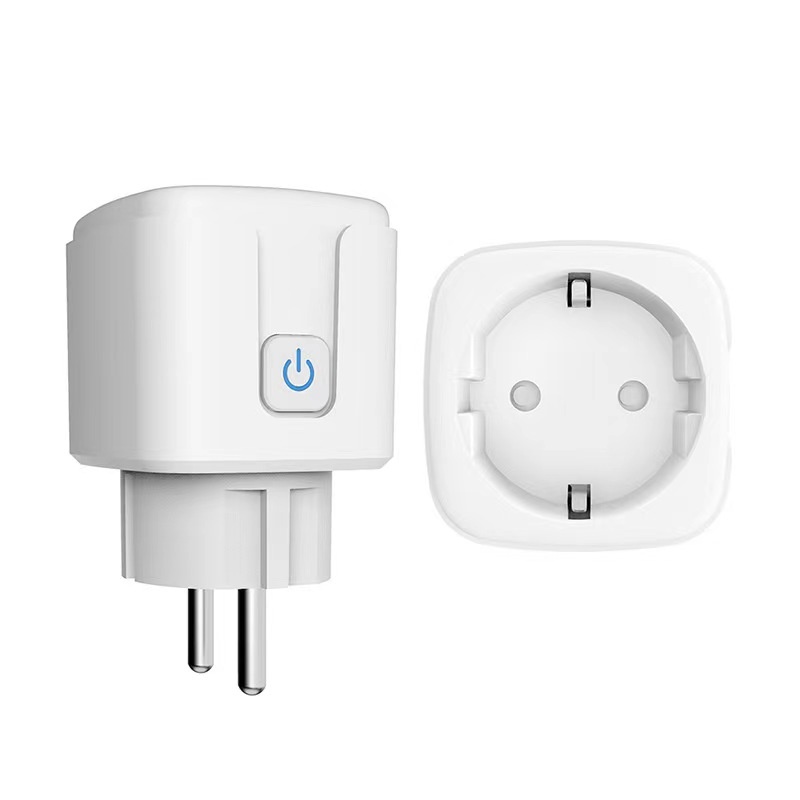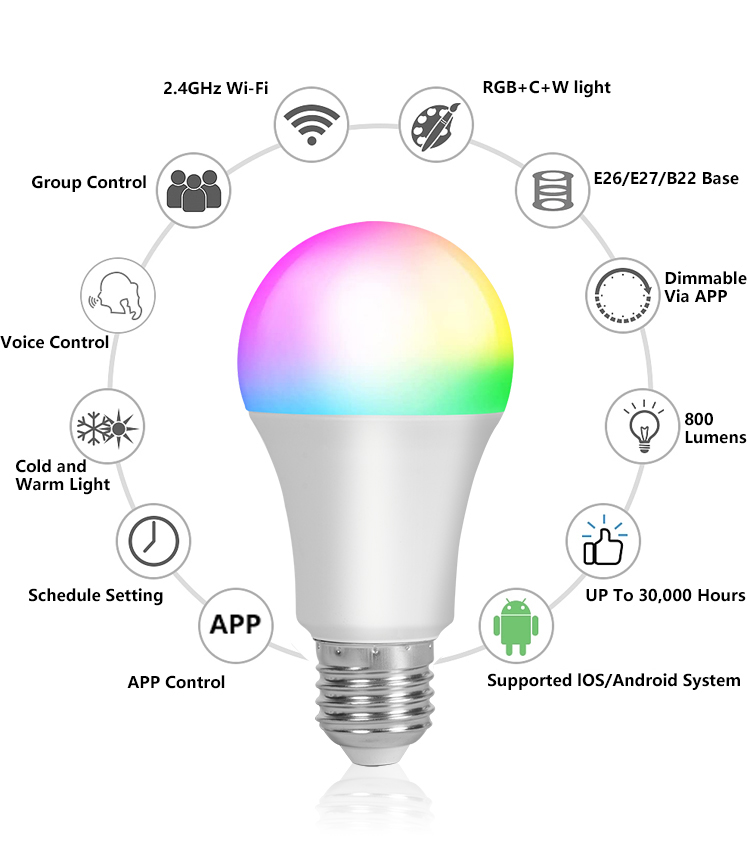Renters face unique challenges when creating a smart home. Without the freedom to make permanent modifications to electrical systems, traditional smart switch installation often isn’t an option. Fortunately, the market has responded with innovative solutions that deliver smart home functionality without requiring structural changes. These renter-friendly options provide the convenience and efficiency of smart home technology while respecting property restrictions and preserving security deposits.
Renter-Specific Challenges
Several factors complicate smart home implementation for renters.
Property Modification Restrictions
Most rental agreements limit electrical modifications:
Typical Lease Limitations:
- Prohibition of modifications to electrical wiring
- Requirements for professional electrician involvement
- Restoration obligations upon move-out
- Approval processes for permanent changes
Landlord Concerns:
- Safety and code compliance issues
- Liability for improper installations
- Property value and inspection impacts
- Standardization across multiple units
Deposit Considerations:
- Risk of forfeiting security deposits
- Documentation requirements for approved changes
- Restoration costs at lease end
- Potential disputes over modification quality
Temporary Installation Requirements
Rental solutions must accommodate mobility needs:
Relocation Flexibility:
- Easy removal without damage
- Portable between different properties
- Minimal specialized tools for installation/removal
- Reusable components after moving
Variable Property Configurations:
- Adaptation to different outlet and switch styles
- Solutions for older properties with limited infrastructure
- Accommodation of unusual wiring configurations
- Compatibility with various fixture types
Restoration Simplicity:
- Quick return to original condition
- No visible evidence after removal
- Original components preserved for reinstallation
- Minimal specialized knowledge required for restoration
Smart Plug Solutions
Smart plugs represent the most straightforward renter-friendly solution.

We offer 16A Smart Plugs with energy monitoring.
Basic Implementation Strategies
Maximize effectiveness with thoughtful deployment:
Strategic Placement:
- Prioritize frequently used devices
- Focus on high-visibility areas for maximum impact
- Consider accessibility for occasional manual control
- Plan for potential WiFi coverage limitations
Aesthetic Integration:
- Choose compact designs that minimize visual impact
- Consider cord management to reduce clutter
- Select models that match your decor when visible
- Use furniture placement to conceal when possible
Functional Grouping:
- Use smart power strips for entertainment centers
- Deploy individual plugs for standalone lamps
- Consider specialized outdoor models for balconies/patios
- Implement smart USB outlets for charging stations
Specialized Rental Applications
Smart plugs excel in several rental-specific scenarios:
Lighting Enhancement:
- Control floor and table lamps without wiring changes
- Create coordinated lighting scenes across multiple fixtures
- Implement sunrise/sunset automation for natural rhythms
- Develop pathways of automated lighting for nighttime navigation
Appliance Management:
- Monitor high-consumption devices like portable AC units
- Prevent unnecessary operation of heaters or fans
- Schedule coffee makers and kitchen appliances
- Create away-mode presence simulation
Entertainment Optimization:
- Eliminate standby power consumption from electronics
- Synchronize multiple components with single commands
- Implement screen time limitations through power control
- Create entertainment scenes that adjust multiple elements
Switch Control Without Replacement
Several innovative approaches allow smart control of existing switches.
Switch Covers and Adapters
These devices mechanically operate existing switches:
Mechanical Switch Robots:
- Small motorized devices that physically flip traditional switches
- Installation using removable adhesive
- Battery-powered operation for wire-free installation
- Smartphone and voice assistant compatibility
Smart Switch Covers:
- Replace existing switch plates with smart alternatives
- Mechanical actuators that toggle underlying switches
- Battery or optional wired power
- Preserve original switch functionality while adding smart features
Implementation Considerations:
- Verify physical compatibility with your switch style
- Consider battery replacement accessibility
- Evaluate noise levels for bedroom installations
- Check thickness requirements for tight spaces
Fixture-Level Solutions
Smart components at the light fixture rather than the switch:

The Switch Go SG-A16 Smart Light Switch provides efficient home automation. This smart light switch integrates seamlessly with smart home systems, offering voice control and custom scheduling features for enhanced convenience and energy efficiency.
Smart Bulbs with Switch Management:
- Special smart bulbs that maintain settings despite switch operation
- Power loss memory features
- Switch position detection technology
- Remote control regardless of physical switch state
Smart Fixtures with Independent Control:
- Plug-in ceiling lights with integrated smart capabilities
- Pendant lights with built-in WiFi or Bluetooth
- Track lighting systems with smart features
- Portable smart light fixtures with multiple mounting options
Practical Implementation:
- Educate household members about control methods
- Consider adding small switch covers as reminders
- Implement redundant control methods (app, voice, and physical)
- Create simple automation rules for common scenarios
Hybrid Approaches for Maximum Flexibility
Combining multiple technologies often yields the best results.
Coordinated Multi-Device Systems
Create comprehensive solutions through device combinations:
Layered Lighting Control:
- Smart bulbs for color and dimming capabilities
- Smart plugs for non-smart fixtures
- Switch adapters for ceiling lights
- Portable smart lamps for accent lighting
Environmental Coordination:
- Smart plugs for portable heaters or fans
- Window sensors for HVAC optimization
- Temperature sensors for automated comfort
- Smart curtain controllers for natural light management
Entertainment Enhancement:
- Smart plugs for TV and component power
- Smart lighting for viewing atmosphere
- Occupancy sensors for automatic adjustment
- Audio integration for comprehensive scenes
Sensor-Based Automation
Add intelligence without controlling power directly:
Motion-Activated Systems:
- Wireless motion sensors triggering smart plugs
- Occupancy-based lighting control
- Pathway illumination for nighttime navigation
- Presence detection for security features
Environmental Monitoring:
- Temperature sensors controlling smart plug-connected fans or heaters
- Humidity detection managing dehumidifiers or humidifiers
- Light level sensors adjusting supplemental lighting
- Air quality monitoring activating purification systems
Time and Location Triggers:
- Geofencing for arrival/departure routines
- Time-based scheduling for daily patterns
- Sunrise/sunset automation for natural rhythms
- Calendar integration for varying schedules
Portable Smart Home Hubs
Centralized control systems enhance rental smart home capabilities.
All-in-One Control Centers
Standalone devices that combine multiple functions:
Smart Displays with Hub Functionality:
- Touch screen control centers
- Voice assistant integration
- Video communication capabilities
- Entertainment and information features
Dedicated Hub Devices:
- Protocol translation for diverse device types
- Local processing for privacy and reliability
- Backup operation during internet outages
- Advanced automation capabilities
Speaker-Based Control Centers:
- Voice control for hands-free operation
- Multi-room audio capabilities
- Intercom functionality between rooms
- Notification and alert systems
Mobile-Centric Control Systems
Smartphone-based approaches for maximum portability:
App-Based Control Ecosystems:
- Unified interfaces for diverse devices
- Geofencing and location-based triggers
- Notification management and alerts
- User permission and access control
Bluetooth-Focused Systems:
- Direct device control without WiFi dependency
- Reduced privacy concerns with limited cloud connectivity
- Lower power consumption for extended battery life
- Simplified setup without network configuration
Personal Assistant Integration:
- Voice control through smartphone assistants
- Pocket-sized smart speakers for portable control
- Wearable device integration for contextual automation
- Cross-platform synchronization for consistent experience
Aesthetic and Practical Considerations
Rental smart home implementations require special attention to appearance and practicality.
Visual Integration Strategies
Minimize the visual impact of temporary solutions:
Cable Management:
- Cord concealment products with removable adhesive
- Furniture placement to hide components and wiring
- Decorative elements that disguise technical devices
- Color-matching for less conspicuous installation
Device Selection Criteria:
- Compact form factors that minimize visual presence
- Neutral color options that blend with various decors
- Consistent design language across device types
- Premium finishes for visible components
Intentional Visibility:
- Showcase design-forward devices as decor elements
- Select statement pieces for deliberate accent points
- Incorporate devices into existing design themes
- Use lighting to enhance rather than distract
Practical Implementation Tips
Maximize functionality while respecting rental limitations:
WiFi Optimization:
- Consider mesh networks for better coverage
- Position hubs and repeaters strategically
- Address potential interference sources
- Balance device distribution across available bands
Power Management:
- Identify available outlets and their circuit assignments
- Avoid overloading any single circuit
- Consider uninterruptible power supplies for critical devices
- Plan for efficient charging station locations
Maintenance Accessibility:
- Ensure access for battery replacement
- Position hubs and bridges for easy reset if needed
- Document network names and passwords securely
- Create simple troubleshooting guides for household members
Taking It With You: Relocation Strategies
One significant advantage of renter-friendly smart home solutions is portability.
Pre-Move Planning
Prepare for smooth transitions between properties:
System Documentation:
- Inventory all devices with model numbers and locations
- Record network configurations and special settings
- Document automation rules and scenes
- Save manufacturer instructions and support contacts
Phased Disassembly:
- Plan sequential shutdown to minimize disruption
- Back up all system configurations before dismantling
- Photograph complex arrangements before disassembly
- Label components and their relationships
Packing Considerations:
- Use original packaging when available
- Group related components together
- Protect sensitive electronics appropriately
- Keep essential setup tools easily accessible
Setup in New Locations
Efficiently reestablish your system after moving:
Environment Assessment:
- Evaluate new floor plan for device placement
- Identify available outlets and their locations
- Assess natural light patterns for sensor positioning
- Consider new architectural features that affect automation
Prioritized Redeployment:
- Establish core network infrastructure first
- Deploy essential daily-use devices next
- Implement room-by-room rather than device-by-device
- Test basic functionality before complex automation
Optimization for New Space:
- Adjust automation for different room sizes and layouts
- Reconfigure lighting based on new window positions
- Update arrival/departure routines for new entry points
- Modify schedules based on new environmental factors
Future-Proofing Your Rental Smart Home
Make investments that retain value across multiple residences.
Scalable System Selection
Choose approaches that grow with your needs:
Ecosystem Flexibility:
- Prefer systems that work across multiple platforms
- Select devices with broad compatibility
- Avoid proprietary solutions when possible
- Consider Matter-compatible devices for future interoperability
Modular Expansion Capability:
- Start with core components that support expansion
- Choose systems allowing gradual addition of devices
- Select hubs with capacity beyond immediate needs
- Invest in platforms with diverse device categories
Long-Term Support Considerations:
- Research manufacturer track records for software updates
- Consider company stability and market position
- Evaluate customer support reputation
- Check typical product lifecycle lengths
Investment Prioritization
Allocate resources to maximize long-term value:
High-Portability Focus:
- Invest more in easily movable devices
- Limit spending on location-specific solutions
- Prioritize versatile devices usable in various settings
- Consider device lifespan across multiple residences
Quality Tiering:
- Invest in premium quality for core infrastructure
- Choose mid-range options for frequently moved devices
- Balance feature needs against replacement costs
- Consider warranty coverage relative to expected moves
Skill Development Value:
- View each implementation as learning experience
- Document successful approaches for future reference
- Build expertise in portable automation strategies
- Develop troubleshooting skills applicable across systems
Renters can create sophisticated, responsive living environments without permanent modifications by leveraging these renter-friendly smart home approaches. By thoughtfully selecting and implementing portable smart switches, plugs, and complementary technologies, you can enjoy the convenience, efficiency, and comfort of home automation while respecting property restrictions. Best of all, these investments move with you, providing consistent benefits across multiple residences throughout your rental journey.
